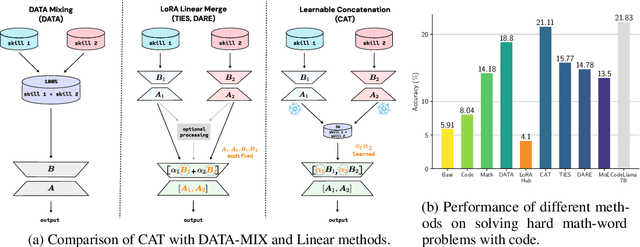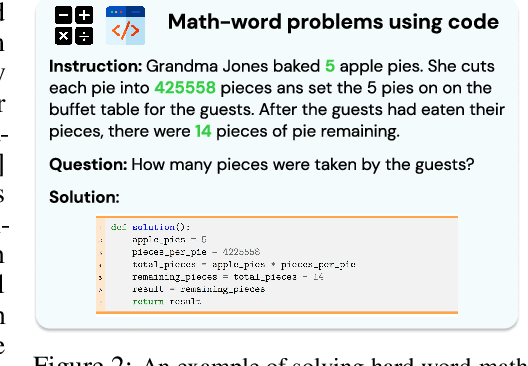LoRA Soups: Merging LoRAs for Practical Skill Composition Tasks
Paper and Code
Oct 16, 2024



Low-Rank Adaptation (LoRA) is a popular technique for parameter-efficient fine-tuning of Large Language Models (LLMs). We study how different LoRA modules can be merged to achieve skill composition -- testing the performance of the merged model on a target task that involves combining multiple skills, each skill coming from a single LoRA. This setup is favorable when it is difficult to obtain training data for the target task and when it can be decomposed into multiple skills. First, we identify practically occurring use-cases that can be studied under the realm of skill composition, e.g. solving hard math-word problems with code, creating a bot to answer questions on proprietary manuals or about domain-specialized corpora. Our main contribution is to show that concatenation of LoRAs (CAT), which optimally averages LoRAs that were individually trained on different skills, outperforms existing model- and data- merging techniques; for instance on math-word problems, CAT beats these methods by an average of 43% and 12% respectively. Thus, this paper advocates model merging as an efficient way to solve compositional tasks and underscores CAT as a simple, compute-friendly and effective procedure. To our knowledge, this is the first work demonstrating the superiority of model merging over data mixing for binary skill composition tasks.
 Add to Chrome
Add to Chrome Add to Firefox
Add to Firefox Add to Edge
Add to Edge